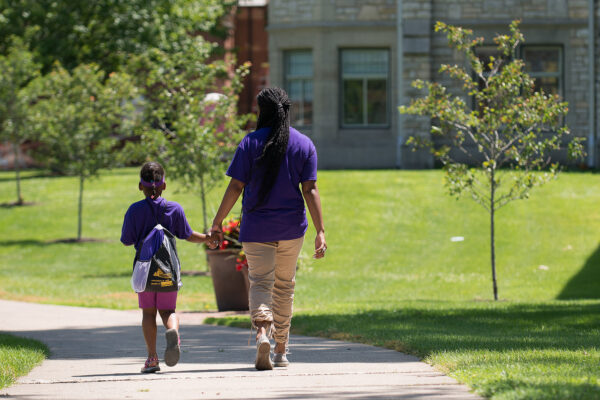Enhancing College Websites to Support Adult Learners
Title: Beyond the Basics: How Institution Websites Can Encourage Enrollment for Adult Learners
Source: American Institutes for Research
Authors: Jasmine Howard, Abril Dominguez, and Sachiko Oates
American Institutes for Research, in partnership with Lumina Foundation, is researching how colleges and universities can better design programs and messaging to meet the needs of Black, Hispanic, and Native American adult learners. A 2024 review of 350 institution websites highlighted promising practices in presenting key information to these learners.
Including imagery and language that reflect adult learners’ various identities helps demonstrate an understanding of their unique needs and goals, a commitment to supporting them, and tailored programming.
Detailed recommendations include:
Diverse representation in website imagery and text: Ensure that visuals prominently feature adult learners, especially those from diverse racial and ethnic backgrounds. Websites that make a positive first impression on adults exploring postsecondary education often include images, testimonials, and stories that authentically reflect the experiences of diverse adult learners. For example, showcasing quotes like, “The schedule is flexible enough to accommodate more than just schoolwork in your personal life,” can emphasize how programs support adult learners balancing multiple responsibilities.
Custom pages for adult learners: Create a dedicated webpage for adult learners that addresses their specific needs and questions. Use supportive language and include relevant information such as fully online degree programs, flexible scheduling options, credit for prior learning, and scholarships. Highlight support services and programs tailored to various identities, including learners of color, undocumented students, first-generation students, veterans, transfer students, and justice-impacted students. Clearly outline the application and enrollment processes, especially for those with prior college experience, and ensure contact information is easily accessible for learners with additional questions. For example, consider adding an FAQ-style section that addresses common barriers and provides reassurance and resources to overcome these obstacles.
Welcoming adult learners with customized communication: Use messaging that speaks directly to adult learners’ concerns. For example, include statements like, “Wondering how to balance coursework with family and other responsibilities? [Our college] provides the flexibility you need to pursue your career and college goals without compromising your current commitments.” Also feature testimonials that resonate, such as, “I considered returning to a brick-and-mortar campus, but the thought of uprooting my family didn’t seem like a realistic option. I looked at other online options too. Then I came across [this college]. The competency-based model made the decision an easy one.”
Click here to read the full blog and guiding framework.
—Nguyen DH Nguyen
If you have any questions or comments about this blog post, please contact us.


